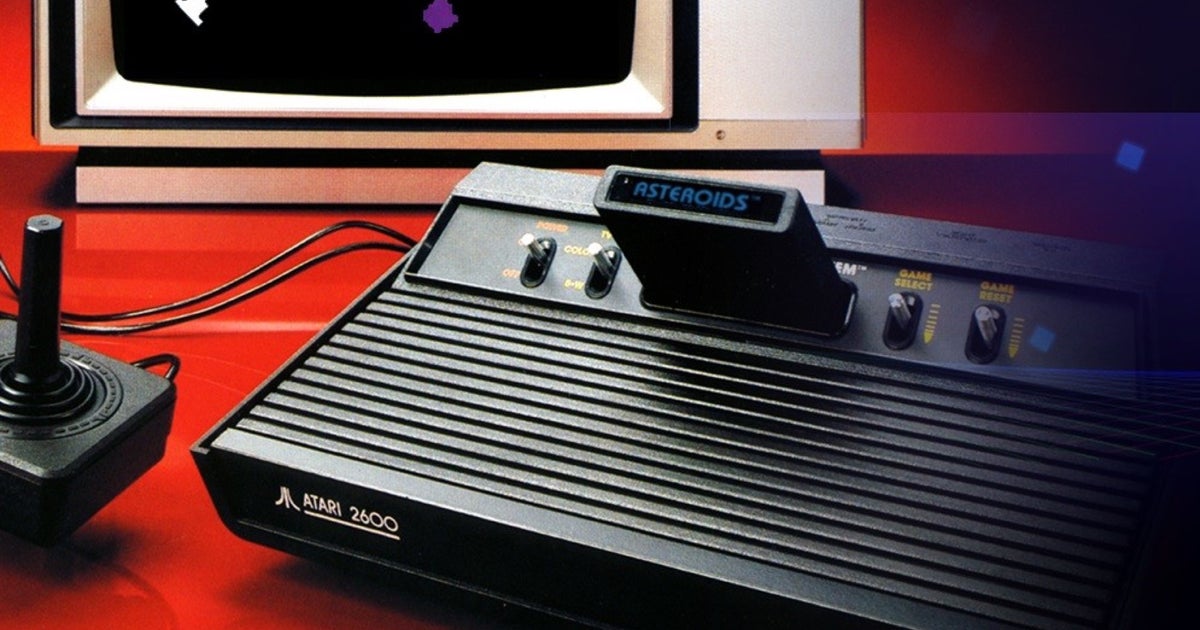If you’ve followed health and wellness news and trends over the last couple of years, you’re likely familiar with the drug Ozempic, which appears to promise dramatic results for individuals wanting to lose a significant amount of weight.
The glucagon-like peptide 1, or GLP-1, drug is a fairly new medication that was originally approved by the Food and Drug Administration in 2017 for the treatment of type 2 diabetes. It was designed to improve blood sugar, along with diet and exercise, possibly leading to weight loss.
But research has shown that nearly half of patients using diabetes drugs are using them off-label to lose weight. Ozempic in particular has grown in popularity for that purpose, especially among celebrities, several of whom have admitted they’ve dabbled in these types of weight-loss drugs.
A lesser-talked about narrative, though, is the considerable impact the drug may have on disordered eating behaviors — something experts are now sounding the alarm about.
And despite some small studies, like this 2023 report in the journal Obesity Pillars, citing these drugs as a potential treatment for certain disordered eating behaviors like binge eating, some mental health professionals, including Elizabeth Wassenaar, MD, regional medical director at Eating Recovery Center, worry that GLP-1s could actually exacerbate the exact problem prescribing physicians seek to address.
To get to the bottom of it all, PS spoke to all three experts about the potential impact GLP-1 drugs like Ozempic can have on EDs and whether or not the two were ever meant to coexist.
Experts Featured in This Article:
Elizabeth Wassenaar, MD, regional medical director at Eating Recovery Center.
Kelli Rugless, PsyD, chief clinical officer at eating disorder treatment program Project HEAL.
Barbara Kessel, DO, a supervising psychiatrist at Equip Health.
A Vulnerable Population and an All-Too-Available Market
One risk with GLP-1 drugs occurs when they’re prescribed unintentionally to people who have or are at risk for eating disorders.
Kelli Rugless, PsyD, chief clinical officer at Project HEAL, an eating disorder treatment program, reports seeing more patients who are unaware (or not ready to admit) that they have a disordered relationship with food and their body seek out drugs like Ozempic and then experience a worsening of their mental and physical symptoms over time. Dr. Wassenaar has also seen patients with a history of eating disorders who appeared to be in stable recovery experiencing relapse after being prescribed the drugs.
Contributing to this issue is the fact that the drugs are being prescribed without thorough enough screening protocols that take into account a person’s risk for developing a disordered relationship with food or body image.
Eating disorders are notoriously difficult to spot, according to Barb Kessel, DO, a supervising psychiatrist at Equip Health, a mental health clinic that provides virtual eating disorder care. She worries that providers aren’t educated enough on disordered eating to even recognize it in certain patients before prescribing these “weight-loss” drugs.
Dr. Kessel says that most medical providers, even those working in mental health fields, aren’t properly equipped to screen for them. “Generally speaking, the whole workforce, including primary care physicians and nurse practitioners, could use more education on eating disorders and screening for them,” she says.
But Ozempic is not solely available in doctor’s offices. It’s grown increasingly easier to obtain, with many patients receiving prescriptions for the drug from medical spas, which encourage its use for cosmetic weight loss. “If you have [a provider] who is primarily just focused on weight loss, they could be missing some very serious warning signs and worsening the effects of a potential brewing eating disorder,” Dr. Kessel says.
And when someone who is at risk for disordered eating takes Ozempic, the results can be dire.
The rise in the popularity of Ozempic, Wegovy, and similar medications has brought weight loss into the public conversation in a way that may be triggering for many people, even those who don’t take the drugs themselves. As Patrick Kuklinski wrote in a previous article for PS, “Now that weight-loss drugs have become so much more popularized, having a heavyset body looks like you’re ‘stagnating.’ After all, if there’s an ‘easy way out,’ why defy our societal norm of ‘fat is wrong’? Because Ozempic has made being fat a choice, there is an expectation for fat people to simply choose to conform by becoming skinny.”
Fatphobia never went away, but so many conversations around the current class of weight-loss drugs reinforce the stigma around weight in a way that can drive disordered thoughts and behavior. Fear of weight gain, a desire to be thinner, and thinking about dieting were all predictive of eating disorder severity, according to a 2022 study in the Journal of Psychopathology and Clinical Science.
And if that’s a possible result of simply living in a world in which Ozempic has become a trend, imagine the consequences of taking the drug, losing weight, and receiving external validation.
Weight-loss drugs have the potential to accelerate both mental and physical symptoms of eating disorders, including disordered thought patterns, extreme calorie restriction, and gastroparesis, a condition in which the stomach takes too long to empty its contents, Dr. Wassenaar tells PS.
Eating disorders are one of the most fatal mental illnesses; anorexia specifically has the highest mortality rate of any psychiatric disorder. This makes prescribing a medication that can potentially trigger disordered eating behavior all the more concerning, says Dr. Wassenaar.
A Superficial Solution to a Complex Problem
Regarding the use of weight-loss drugs to “treat” certain subsets of eating disorders, such as binge-eating disorder, some experts say it’s simply too soon to say for sure whether the medications are actually helpful, or could cause long-term problems.
Dr. Rugless says that although research has indicated GLP-1 drugs might be helpful for decreasing binge episodes and food noise, she worries that providers may be prescribing the drug to people with BED without an understanding of the bigger picture — both mental and physical. For example, if a patient experiences a plateau with their weight while on a weight-loss drug or stops taking the medication, they may be at risk of a relapse, she says.
“There is something called the binge-deprivation cycle, which suggests that there is always a period of restriction that precedes a binge episode, and until you address the causes or triggers of the restriction, the binge episodes will continue to happen,” she explains. “This means that taking GLP-1 drugs, which help folks achieve weight loss by suppressing their appetite, have the potential of inducing a prolonged restriction, which could increase probability and intensity of a binge episode if/when they choose to stop taking the medication for whatever reason.”
Additionally, for some people, that food noise is probably hunger cues, and ignoring those cues can alter the hormonal balance that drives hunger and fullness in your body, further promoting restriction.
That’s not to say that GLP-1 drugs definitely cannot help those with BED; but the evidence of their benefits is limited, so they should be approached with extreme caution. Additionally, if they are being used, they should only be one small part of a treatment plan that also includes mental and physical health support.
Dr. Wassenaar likens it to the opioid crisis, in which many providers initially believed they were addressing pain in a positive and helpful way, and only understood the full risks associated with the medications much later.
“It was not until years and decades later we learned the tragic dark side of prescription opiate pain medications and how they could trigger the mental illness of addiction, and now we are dealing with the fall-out of this prescribing practice,” she says. “I worry that GLP-1 RAs could have a similar impact on eating disorders, in that we won’t know the true harm for many years, and by then countless people will have suffered from preventable mental illness.”
Access to eating-disorder treatment is already difficult, thanks to stigma, gaps in care, and therapists being overwhelmed by a rise in clientele. The potential for GLP-1s to create or exacerbate disordered eating “could create an influx of individuals who need our services and overtax an industry that is already unable to meet the current needs of folks seeking treatment for eating disorders,” Dr. Wassenaar says.
A Comprehensive Approach
Ultimately, the choice to use a GLP-1 drug is between you and your healthcare provider. But for those with a history of disordered eating behaviors, experts encourage taking extra precaution.
You may think that if you’ve graduated from eating disorder treatment, you may be in the clear to use medications like Ozempic without worry. However, according to Dr. Kessel, even patients who are considered to be in eating disorder recovery (which means they can manage triggering symptoms without having an impact on their everyday lives) should seek appropriate counsel if they’re considering a weight-loss drug like Ozempic.
“It would be immensely helpful to seek help from a dietitian that is eating-disorder informed, or to make sure that they have support set up for their eating disorder, because we know that these drugs can trigger worsening of disordered eating habits,” she says.
The best treatment plan is both supervised and comprehensive, experts agree, accounting for both mental and physical health.
Emilia Benton is a freelance health and wellness journalist who is particularly passionate about sharing diverse stories and elevating underrepresented voices. In addition to PS, her work has been published by Runner’s World, Women’s Health, Self, Outside, and the Houston Chronicle, among others. Emilia is also a 13-time marathoner and a USATF Level 1-certified run coach.

Rachel Carter is a health and wellness expert dedicated to helping readers lead healthier lives. With a background in nutrition, she offers evidence-based advice on fitness, nutrition, and mental well-being.

:quality(85):upscale()/2024/05/30/716/n/49351082/a0ed8b426658a529430ce0.97158615_.jpg)






